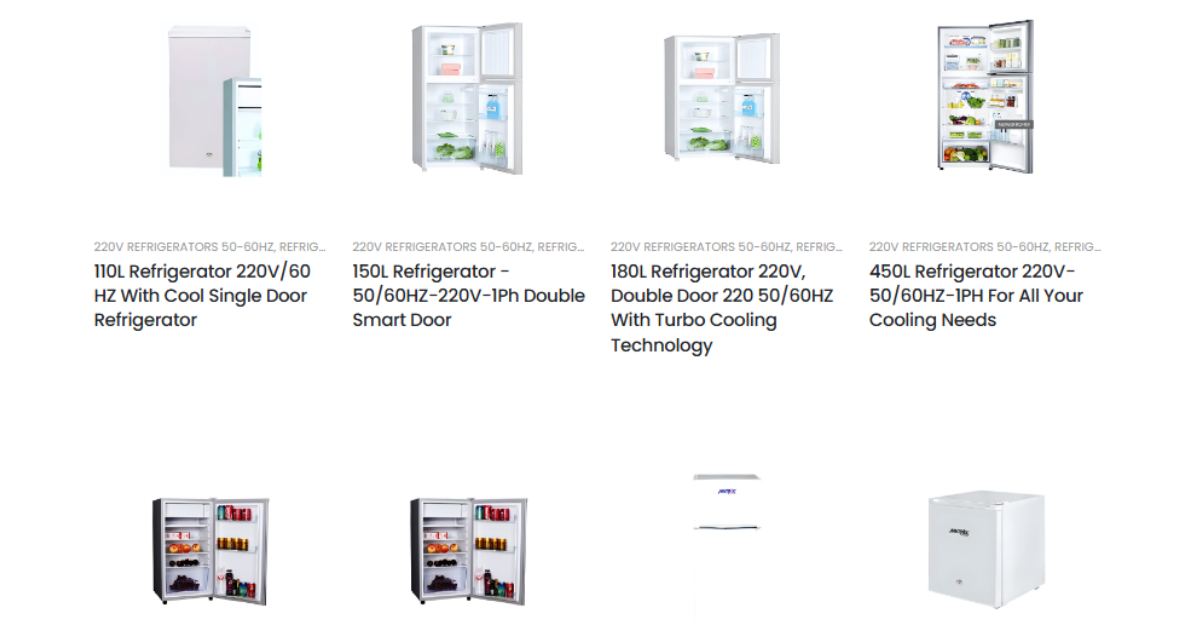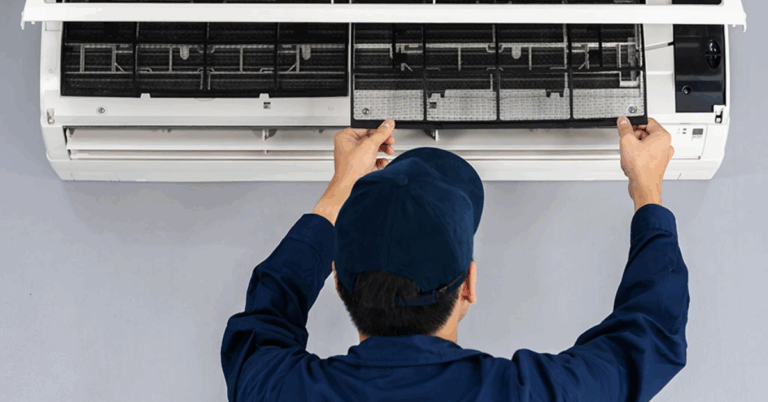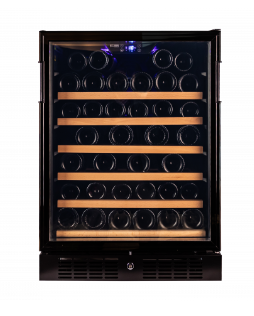Can You Use a 50Hz Fridge on 60Hz Power? Everything You Need to Know
When purchasing or relocating appliances internationally, one common concern is power compatibility—especially with refrigerators. A frequent question is whether it’s safe and efficient to use a 50Hz Fridge On 60Hz. The answer depends on several technical and safety considerations. This guide from Royal Light LLC will explain the implications, risks, and solutions related to operating a 50Hz refrigerator on a 60Hz electrical supply.
Understanding Frequency in Electrical Appliances
Before diving into compatibility, it’s essential to understand what electrical frequency means. In electricity, frequency refers to the number of cycles per second at which alternating current (AC) flows. It is measured in Hertz (Hz).
- 50Hz is the standard frequency in many countries, including most of Europe, Asia, and Africa.
- 60Hz is standard in North America and a few other regions.
Many appliances, including refrigerators, are designed with motors and internal components calibrated for a specific frequency. When frequency mismatches occur, performance and safety can be compromised.
What Happens When You Use a 50Hz Fridge on 60Hz?
The outcome depends on whether the appliance is designed to handle both frequencies (dual-frequency) or strictly optimized for one. Here’s what could happen if you plug a 50Hz-only refrigerator into a 60Hz supply:
1. Motor Speed Increases
A compressor motor in a refrigerator is typically synchronous or asynchronous, both of which depend on the frequency to determine speed. Operating a 50Hz-rated motor on 60Hz power will cause the motor to run approximately 20% faster.
- Result: This can lead to increased wear and tear, shortened compressor life, and higher noise levels.
2. Cooling Cycle May Be Affected
The faster-running compressor may cause the fridge to cycle differently than intended.
- Result: It may cool more quickly or inconsistently, leading to temperature control issues or compressor inefficiency.
3. Overheating Risk
Motors and compressors designed for 50Hz may not dissipate heat efficiently at 60Hz. This could lead to excessive heating and, eventually, failure.
- Result: Risk of fire, damaged insulation, or irreversible component wear.
4. Voided Warranty and Safety Issues
Manufacturers generally do not cover damages caused by using appliances outside their rated electrical specifications.
- Result: Voiding the warranty and possible fire hazards or safety risks in your home or business.
Exceptions: Dual-Frequency Refrigerators
Some modern refrigerators are designed to operate on both 50Hz and 60Hz. These units are labeled accordingly, such as:
- “AC 220-240V, 50/60Hz”
- “AC 110-120V, 50/60Hz”
In such cases, using the appliance across both frequency standards is safe, assuming the voltage rating also matches.
Always check the nameplate on the back of your fridge for exact specifications before plugging it into a different electrical system.
Voltage and Frequency Compatibility: Why Both Matter
Voltage and frequency go hand-in-hand. Even if your fridge’s plug fits the socket and the voltage matches (e.g., 220V), a mismatch in frequency can still damage internal parts.
Scenario Example:
- A fridge rated for 220V, 50Hz is used in a country with 220V, 60Hz power.
- Voltage is compatible, but frequency is not.
- The compressor runs too fast, possibly causing failure over time.
If both voltage and frequency are different, you will need a voltage converter and possibly a frequency converter—but more on that later.
When You Can Use a 50Hz Fridge on 60Hz Safely
There are certain controlled conditions where this setup can work safely:
1. Appliance is Rated for Dual Frequency
Always look for labels or manufacturer specifications that indicate dual compatibility.
2. Using Frequency Converter
A frequency converter adjusts the supply from 60Hz to 50Hz, allowing your fridge to operate as intended. However, this is usually expensive and mostly used in industrial setups.
3. Short-Term Use
In some cases, users have reported temporary use of 50Hz fridges on 60Hz with minimal issues. However, this is not recommended as a long-term solution.
4. Modified Refrigeration System
In commercial setups, technicians may retrofit compressors or adjust control circuits for frequency differences. This should only be done by certified professionals.
Professional Recommendation
At Royal Light LLC, we advise customers to use appliances within their designed electrical ratings. If you have a refrigerator intended for 50Hz, we recommend one of the following:
- Use a frequency converter (for high-end or sentimental appliances).
- Replace the unit with a compatible 60Hz version (for efficiency and safety).
- Consult a qualified electrician to evaluate risks in your specific environment.
How to Identify Frequency Compatibility
Check the label or user manual of your fridge. It usually provides the following information:
- Voltage range (e.g., 220-240V)
- Frequency rating (e.g., 50Hz, 60Hz, or both)
If you can’t find the information, contact the manufacturer or refer to the official website.
Frequently Asked Questions (FAQ)
Can a 50Hz refrigerator run on 60Hz power supply?
Technically, yes—if the voltage matches and the fridge can tolerate the increased motor speed. However, long-term use may result in damage due to overheating or mechanical stress. Always check the appliance label.
What happens to the compressor when used on a higher frequency?
A 50Hz-rated compressor running on 60Hz may rotate faster than intended, causing increased vibration, noise, and wear. This can shorten its life span or lead to premature failure.
Is it safe to use a frequency converter for a refrigerator?
Yes, a frequency converter is a safe and effective solution to ensure the appliance receives power at the correct frequency. However, these devices are costly and may not be practical for home use unless the fridge is particularly valuable.
Can using a 50Hz fridge on 60Hz power damage other appliances in the same circuit?
No, it won’t damage other appliances. However, an overloaded or malfunctioning refrigerator could trip breakers or increase the load on your circuit.
Is there a simple adapter to convert frequency like a plug converter?
No, plug adapters only modify the shape of the plug, not the electrical properties. Frequency conversion requires a dedicated electronic device, not a simple plug-in solution.
How do I know if my refrigerator supports 60Hz?
Check the nameplate or user manual. If it says “50/60Hz”, it’s compatible. If it only says “50Hz”, avoid using it on 60Hz without consulting a professional.
Conclusion
Using a 50Hz fridge on a 60Hz power supply isn’t always straightforward. While some appliances are designed for dual-frequency operation, many are not—and using them incorrectly can result in long-term damage, reduced efficiency, or even safety hazards. If you’re moving to a new country or buying appliances internationally, understanding electrical compatibility is critical.
At Royal Light LLC, we specialize in global electrical solutions. Whether you need help with appliance compatibility, frequency converters, or international power systems, our experts are ready to assist you in making safe, cost-effective choices for your home or business.







